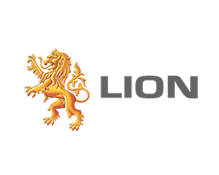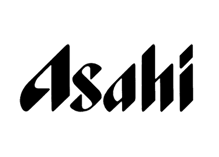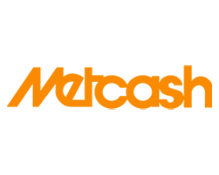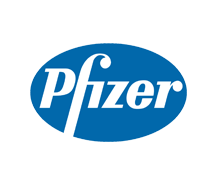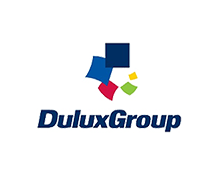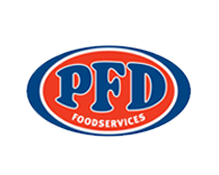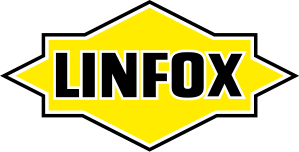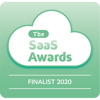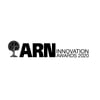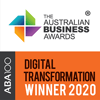Demand Planning | Demand Planning Software | Demand Forecasting
What is Demand Planning and Why Is It Important?
Demand planning is a critical part in the supply chain management process. Without it, you could miss out on meeting customer expectations and provide them with what they want—and that’s never good.If customer satisfaction is important to you, then you need to master every aspect of demand planning.
There are three major components of demand planning: market research, forecasting and demand planning.
Market research is about understanding how customers think and behave.
Forecasting in demand planning is about predicting future trends and events based on historical data.
And finally, Demand Planning is about making sure that the company meets customer needs and provides them with what makes sense.
Importance of demand planning
Effective demand planning should be done in "realtime", not just once per quarter. The demand planning process should be done using forecasting software, not spread sheets. Accurate Demand planning should be about developing a strategy, and a competent demand planning team not merely reacting to what happens next.
Guide to supply chain management (SCM)
Bullwhip effects are caused by small variations in actual consumer demand leading to large changes in additional inventory. Small changes in consumer demand can lead to large changes in inventory levels, causing problems for manufacturers and retailers alike.
For example, if there is a sudden spike in demand for a product, the retailer may not have sufficient inventory levels to meet the increased demand. As a result, the retailer may run out of stock and start selling items at a loss.
This problem can be avoided by using demand planning techniques to anticipate spikes in consumer demand and prepare accordingly. By doing so, retailers can prevent inventory stockouts and keep prices low.
Accurate Inventory Management
Demand forecasting helps reduce the impact by predicting future demand. This allows companies to plan ahead and adjust inventory accordingly.
Supply chains should communicate effectively to prevent the bullwhip effect. A lack of communication leads to overstocking or understocking, causing problems such as shortages or price fluctuations.
Elements of demand planning
Accurate demand forecasts is about understanding customers' needs and wants. It involves determining whether there is enough inventory or production capacity available to meet future requirements.
Inventory data can help put sales figures into perspective by identifying sales lost due the stockout, which indicates a high level of actual demand. Analyzing sales and inventory information can lead to a higher accuracy of demand forecasts.Demand planning includes determining if there are sufficient resources to fulfill customer requests.
Demand Planning vs. Demand forecasting
Demand planning and forecasting are two main functions within demand management. While both play an important role in the creation of a successful demand management strategy, they each have distinct responsibilities and objectives.
Both Of These Tools Can Help You Successfully Manage Your Business.
Demand planning and forecasting are two sides of the same coin. The goal of either process is to understand and anticipate your business’s revenue and spend. The difference between the two is in their level of detail.
The goal of supply chain forecasts is to provide a snapshot of your company’s financial health at a given time, while demand planning goes into much more detail about your customers and their buying patterns so you can anticipate future revenue and expenses.
A Forecast Is Used To Predict The Future, As In What Will Be.
The difference between planning and forecasting is that one of them is more specific and the other is more general.
The difference between planning and forecasting is that planning is what you will do. You plan what products you will sell, what promotions you will run, and how much inventory you will have in your warehouses. You plan your labor costs, production schedules, and other operational expenses. And you plan your revenue.
When you plan, you make educated guesses and assumptions, looking at the past to help you project the future. For example, you analyze historical trends and sales data to determine how many items you will need to sell to break even. When you do a proper plan, you will have a solid foundation for where you want to be in the future.
A Demand Plan, On The Other Hand, Is About The Present, As In What Is.
With a demand plan, you track your current volume of activity and adjust your staffing accordingly. This allows you to get the most out of your existing staff and ensure you have the right people in the right positions to handle any unexpected peaks or drops in activity. It’s a proactive approach, rather than a reactive one, which means you’re less likely to overstaff and understaff in your busy season, and that you will have a better idea of your cash flow at any given time.
The two terms are often used interchangeably, but they are distinct from each other. The goal of demand planning is to understand the current and projected demand for products in a certain market segment and plan accordingly. A demand forecast is a specific projection of how many products will be purchased in a given time period.
A Forecast Is Based On Your Best Estimates.
A forecast is a good starting point, but it’s not the end of the story. It’s important to keep in mind that there are many different factors that can impact the demand for a product and your revenue, and that goes for consumer preferences as well as the economy.
A Demand Plan Is Based On Data.
The two planning processes are similar in some ways but different in others. Both use historical data, but one looks backward and the other looks forward. Both use modeling, but one uses historical data and the other uses predictive models.
One uses historical data to figure out what customers did in the past, and the other uses historical data to figure out what customers will do in the future.
Demand planning is about managing supply. A good example of this is when you are trying to decide whether to purchase more inventory or increase production capacity. If you do plan to increase production capacity, you must make sure that there is enough demand to justify it. This is where demand forecasting comes into play. You use historical sales data to predict future demand. Based on this forecast, you can determine whether to invest in additional equipment or hire more workers.
Demand planning is about making decisions, while demand forecasting is predictive. In many cases, demand forecasting is used to help companies make better decisions. For instance, a retailer might use demand forecasts to determine whether to stock up on certain products during the holiday season.
Where Does Demand Planning Fit Within a Business?
Demand planning is one of those terms that gets thrown around a lot without much explanation. What does it mean? How do I know if my organization needs a demand planner? And what role should he or she play within our organizations? These are questions we often hear about demand planning. But where does it fit into the bigger picture of running a successful business? In short, demand planning is a critical component of any business strategy.
A good demand planner will help us understand how to meet customers’ demands. He or she will be able to analyze current trends and identify emerging opportunities. This person will also help us develop plans for future growth. To be effective, a demand planner must take a holistic view of the market, considering both macroeconomic factors like supply and demand and microeconomic factors such as consumer preferences.
The best way to learn about demand planning is to work closely with someone who has experience in the field. If you don't already have a demand planner, now might be a good time to start looking for one. You'll find plenty of demand planners out there—just make sure you're hiring the right person for the job.
7 Key Steps for Successful Demand Planning
Demand planning is one of those activities that seems simple enough, but it takes careful consideration of multiple factors to make it work. In fact, there are seven key steps to successful demand planning:
- Challenge the demand forecast
- Review, reanalyze and refine the demand forecast with all appropriate stakeholders
- Add the most recent data to the forecast to determine its impact on the forecast
- Question any information that might be incorrect
- Identify how much inventory is needed to meet the forecasted demand
- Identify the necessary suppliers and ensure that they can provide the necessary products or services on your required timelines
- Measure results - Establish KPIs that allow you to measure the success or failure of your demand planning efforts
Skills for Demand Planners
Demand planning is one of those areas where you don't want to skimp on quality. A well-trained demand planner can help you optimize your supply chain while ensuring you meet customer expectations. Here are some key skills that demand planners need to know:
Communication skills - Demand planners must be able to communicate effectively across different levels of the organization. This includes communicating with salespeople, purchasing agents, finance managers, and others.
Analytical skills - Demand planners must use data analysis tools to identify trends and patterns in your market. They should be able to analyze historical data and forecast future needs.
ERP knowledge - Demand planners need to know how to navigate enterprise resource planning (ERP) systems like SAP® Business One, Microsoft Dynamics 365, Oracle EPM, Epicor, etc.
Automation skills - Demand planners should be adept at automating manual tasks such as creating purchase requisitions, invoices, and shipping documents.
Leadership skills - Demand planners need to lead teams that implement strategies and tactics to increase revenue. They should be able demonstrate leadership qualities such as influencing stakeholders, motivating employees, and leading change initiatives.
Demand Planning Methods
There are many different ways to plan demand. Some companies use a linear approach, where you start with a set number of units and work your way up to meet demand. Other companies prefer a push method, where you start with zero units and add units to meet demand. Still others opt for a pull method, where you start at full capacity and reduce production to meet demand. There are pros and cons to each type of planning method.
Linear Regression
This forecasting technique assumes that future demand will follow a straight line. You begin with a known quantity of units and predict how much additional demand there will be. This method works well for steady growth and predictable seasonal patterns. However, it doesn't account for changes in customer preferences or unexpected events like product recalls or price increases.
Moving Averages
A moving average is simply a formula that calculates the average value of a variable over a specified period of time. In demand planning, moving averages are commonly used to estimate future demand based on historical demand. For example, if you know that your company sold 500 units last month, you might assume that next month you'll sell half as many units.
Seasonal Trends Modeling
The seasonality trend model uses historical data to determine what happened during previous seasons. If you've been selling a certain item throughout the summer months, you could make assumptions about what will happen in the winter months. By comparing the actual sales numbers against those predicted, you can see whether your assumptions were correct.
Demand Planning Best Practices
Retailers know how important it is to plan ahead for seasonal fluctuations in sales. But what about the rest of the year? How do retailers ensure that they meet customer demands throughout the entire year? In this article, we'll explore some best practices for developing a robust demand planning strategy.
The Importance of Demand Planning
In today's competitive environment, retailers must be prepared for every possible scenario. They need to anticipate consumer behavior and trends in order to make smart decisions. And they need to be able to react quickly to changing market conditions. Retailers use demand planning strategies to help them achieve both goals.
Sales planning
Sales planning is a critical process for any business, but it can be time-consuming and difficult to do manually. A comprehensive sales planning tool can automate many of the tasks involved in sales planning, making it much easier and faster to create an effective plan.
Some of the benefits of using a sales planning tool include:
* The ability to quickly and easily see all of your real sales data in one place. This can help you identify trends and areas that need improvement.
* Automated forecasting that takes into account historical data, current sales figures, and other factors to give you more accurate predictions.
* The ability to create "what if" scenarios so you can experiment with different strategies and see what would work best for your business.
* Collaboration features that make it easy to share your portfolio plans with others on your team and get their feedback.
A good sales planning tool can save you a lot of time and hassle when creating your sales plan, and ultimately help you close more deals and boost productivity.
What Is Demand Planning Software?
Demand planning software is a type of software that can be used to help with simulation and what-if analysis.
Demand planning software is a powerful tool that can help you understand customer demand and figure out how to meet it. It can also be used to predict future demand, which can help you plan for growth or changes in your market. Some of the most common uses for demand planning software include forecasting product sales and determining the impact of price changes on demand.
Types of Demand Planning Software and Demand Forecasting Tools
There are many different types of demand planning software available, so it's important to choose the right one for your needs. Some of the most popular options include Crystal Reports, Microsoft Project, and SAP BusinessObjects. It's important to research each program carefully before choosing it, as not all are suited for every business. Ultimately, it's up to you to decide how much demand planning software will help improve your business efficiency and profitability.
The Benefits Of Demand Planning Software
Demand planning software is a great way to help overlook the business as a whole and identify sales trends. By doing this, it can help to make better financial decisions by anticipating future needs and by forecasting future sales.
Additionally, demand planning software can reduce forecast error by up to 50%. This means that predictions will be more accurate, resulting in less wasted resources and increased company efficiency and profitability.
Demand planning software can also help to identify potential sales opportunities and gaps. By doing this, it is possible to improve market penetration by identifying areas where new products or services may be most beneficial.
Additionally, demand planning software can help reduce customer churn rates and increase customer loyalty. This is because it can assist in understanding customer needs and desires, which can lead to better marketing campaigns that meet those needs.
Finally, demand planning software can help companies anticipate changes in their industry so that they are able to make strategic decisions accordingly.
The Different Types Of Demand Planning Software
There are a number of different types of demand planning software available on the market today. Each has its own unique features and benefits. It is important to choose the right type of demand planning software for your business, as not all software is appropriate for every situation. Here are some of the most common types of demand planning software:
Capacity Planning Software:
This type of software helps businesses to understand how much product or service they will need in the future, based on current and predicted customer behavior.
Demand Forecasting Software:
This type of software helps businesses to predict how much product or service they will need in the future, based on past customer behavior.
Scheduling Software:
This type of software helps businesses to schedule production or services in order to meet anticipated demand levels.
Service Level Agreements (SLAs):
This type of software can be used to create Service Level Agreements with customers in order to guarantee specific quality levels or delivery times.
Why Larry, the Digital Analyst Is The Best Demand Planning Software
Demand planning is an important aspect of business, and it's essential that businesses have accurate forecasting tools to help them make informed decisions. That's why Complexica is the best Demand Planning software on the market......
The software uses artificial intelligence (AI) to improve your forecast accuracy. This means that complex scenarios can be easily handled by the software, without requiring extensive human input. As a result, you can focus on more important tasks, such as running your business effectively.
Complexica has been featured in some of the most well-known publications in the world. Forbes, Wall Street Journal, and CNBC have all written about Complexica and its impact on demand planning. Combined with our years of experience in this field, we know how to provide you with an effective solution for demand planning problems. Contact us today to learn more!
THIS ARTICLE COVERS
Case Studies: Businesses That Have Used Demand Planning Software Successfully
- demand
- demand forecasting
- demand forecasting software
- demand forecasting tools
- demand planner
- demand planner software
- demand planning
- demand planning software
- demand planning tools
- forecasting
- forecasting demand
- forecasting software
- planning
- planning software
- software
- tools
Planning,supply chain,software,forecasting,demand forecasting,supply chain management,customers,cloud,optimization,pricing,ai,integration,cloud-based,finance,price,gmdh,supply chain management software,erp,accuracy,inventory optimization,australia,consumer goods,sales and operations planning,options,organizations,artificial intelligence.
Supply,chain,features,software,supply chain,reporting,demand planning,streamline,product,customer,solution,solutions,source,forecasts,business,forecast,platform,planning software,customers,demand planning software,businesses,pricing,scheduling,planner,best,insights,system,analysis,partner,optimization,learning,retail,finance,sensing,production,operations,machine,smart,price,provides,logility,sourcing,transformation,intelligence,processes,compliance,supply chain planning,technology,automation,request,erp,manager,performance,accuracy,create,digital,team,report,events,planners,capabilities,strategic,decisions,global,replenishment,professional,employees,accurate,financial,chain planning,enterprise,capacity,project,machine learning,track,retailers,promotion,transportation,integrated,advanced,predictive,decision,warehouse,portfolio,kpis,australia,great,powerful,teams,supplier,complex,possible,suppliers,demand planners,options,statistical,flexibility,experts,integration,enterprises,custom,optimize,partners,forecasting software,industries,modeling,supply planning,inventory optimization,algorithms,organizations,scenarios,models,tracking,adjust,artificial,to plan,automate,sku,leverage,interface,recommendations,rapidresponse,enhanced,adaptive,highest.
Supply,chain,features,software,supply chain,reporting,demand planning,streamline,product,customer,solution,solutions,source,forecasts,business,forecast,platform,planning software,customers,demand planning
Supply,chain,features,software,supply chain,reporting,demand planning,streamline,product,customer,solution,solutions,source,forecasts,business,forecast,platform,planning software,customers,demand planning software,businesses,pricing,scheduling,planner,best,insights,system,analysis,partner,optimization,learning,retail,finance,sensing,production,operations,machine,smart,price,provides,logility,sourcing,transformation,intelligence,processes,compliance,supply chain planning,technology,automation,request,erp,manager,performance,accuracy,create,digital,team,report,events,planners,capabilities,strategic,decisions,global,replenishment,professional,employees,accurate,financial,chain planning,enterprise,capacity,project,machine learning,track,retailers,promotion,transportation,integrated,advanced,predictive,decision,warehouse,portfolio,kpis,australia,great,powerful,teams,supplier,complex,possible,suppliers,demand planners,options,statistical,flexibility,experts,integration,enterprises,custom,optimize,partners,forecasting software,industries,modeling,supply planning,inventory optimization,algorithms,organizations,scenarios,models,tracking,adjust,artificial,to plan,automate,sku,leverage,interface,recommendations,rapidresponse,enhanced,adaptive,highest.
An ongoing challenge for modern-day demand planners and inventory managers is improving the accuracy of demand forecasts. Besides the algorithmic challenge of minimising the forecast error, there is also the challenge of understanding and optimising the trade-off between working capital costs and service levels to customers. In complex operating environments where many variables impact on the actual demand realised for specific products in specific geographies, demand forecast accuracy can quickly degrade, resulting in:
- Expedited shipping costs due to the wrong inventory being at the wrong place at the wrong time
- Stock-outs and compromised services levels to customers, especially on measures such as DIFOT and fill rates
- Low inventory stock turns
- Stock obsolescence
- High forecast error
Complexica can help you address these commonplace challenges through our Demand Planner module of Decision Cloud®, which provides robust and easy-to-use demand planning, forecasting, and analysis capabilities. Say goodbye to lost sales due to stock-out, compromised customer service levels and inventory stock turns.

Take the quiz below to find out
Rather than using a pre-defined set of rigid models that are based solely on statistical methods, Complexica’s Demand Planning software relies on a wide variety of predictive algorithms and techniques that are tuned to your internal sales data as well as external sources and available overlays to improve accuracy.
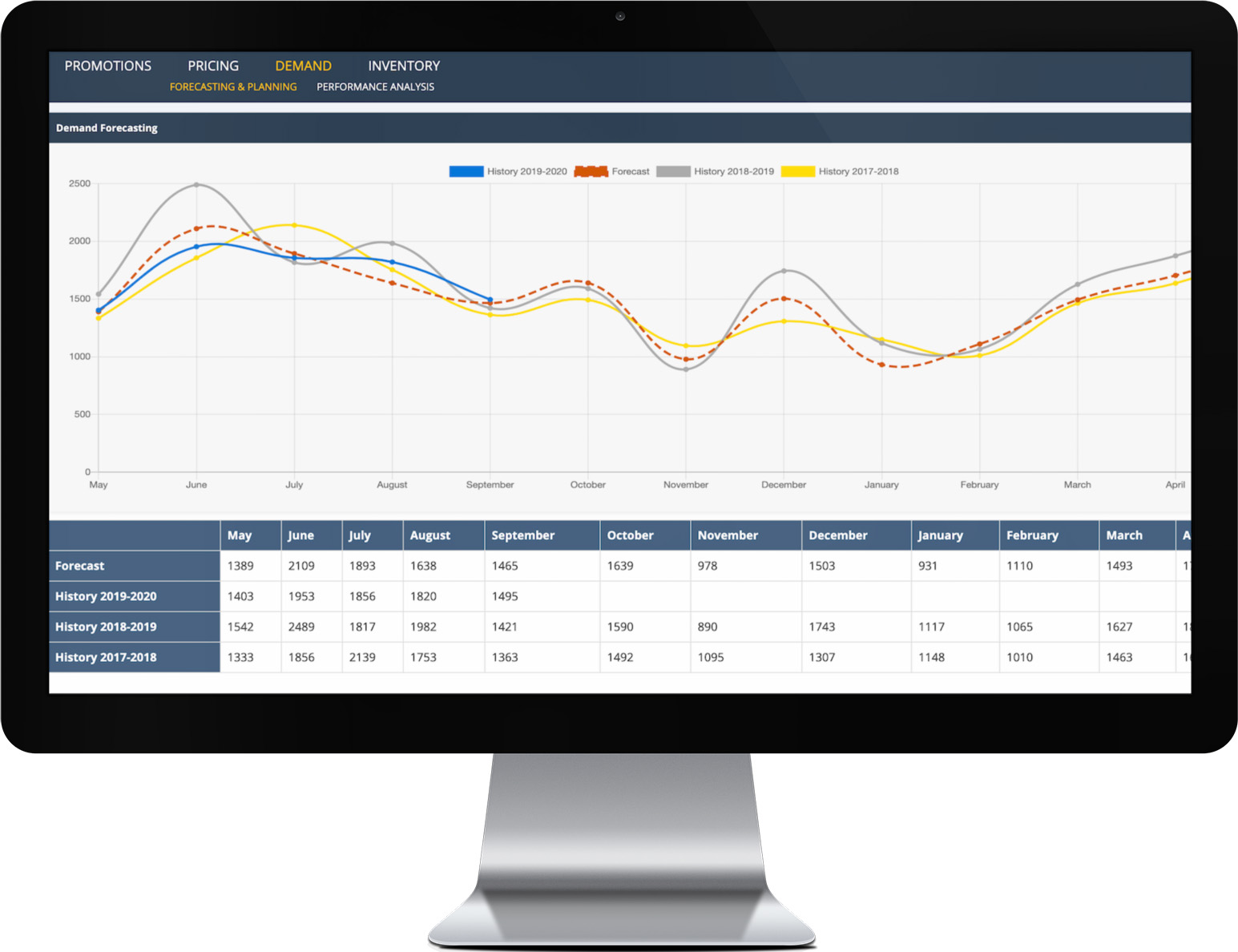

Based on advanced statistical models and Artificial Intelligence methods such as Deep Learning, Demand Planner can help your organisation move demand planning away from an anecdotal and “gut feel” approach, to a data-driven and market intelligence capability. In particular, we can help you:
- Reduce the forecast error associated with demand planning
- Increase DIFOT and service levels to customers
- Improve stock turns and decrease overall inventory levels
- Improve reaction time and response to unexpected events (e.g. sudden change in demand requiring additional inventory)
- Automate manual processes to eliminate human error and key man risk
- Understand the impact of changes in business rules and constraints (such as lead times, capacity constraints, required inventory levels, etc.)
- Replace home-grown spreadsheets, which are often opaque and convoluted
- Optimise and automate the replenishment process across various time periods, product categories, lines, and individual SKUs
- Understand customer sales trends and patterns
To explore how our Demand Planner can help you optimise your supply chain activities, please contact us
"Larry will be our digital expert that will enable our sales team and add that technological advantage that our competitors don't have."
Kerry Smith
CEO, PFD Foods
$1.6 billion in revenue 
"Lion is one of Australasia’s largest food and beverage companies, supplying various alcohol products to wholesalers and retailers, and running multiple and frequent trade promotions throughout the year. The creation of promotional plans is a complicated task that requires considerable expertise and effort, and is an area where improved decision-making has the potential to positively impact the sales growth of various Lion products and product categories. Given Complexica’s world-class prediction and optimisation capabilities, award-winning software applications, and significant customer base in the food and alcohol industry, we have selected Complexica as our vendor of choice for trade promotion optimisation."
Mark Powell
National Sales Director, Lion
"At Liquor Barons we have an entrepreneurial mindset and are proud of being proactive rather than reactive in our approach to delivering the best possible customer service, which includes our premier liquor loyalty program and consumer-driven marketing. Given Complexica’s expertise in the Liquor industry, and significant customer base on both the retail and supplier side, we chose Complexica's Promotional Campaign Manager for digitalizing our spreadsheet-based approach for promotion planning, range management, and supplier portal access, which in turn will lift the sophistication of our key marketing processes."
Richard Verney
Marketing Manager
Liquor Barons

"Dulux is a leading marketer and manufacturer of some of Australia’s most recognised paint brands. The Dulux Retail sales team manage a diverse portfolio of products and the execution of our sales and marketing activity within both large, medium and small format home improvement retail stores. We consistently challenge ourselves to innovate and grow and to create greater value for our customers and the end consumer. Given the rise and application of Artificial Intelligence in recent times, we have partnered with Complexica to help us identify the right insight at the right time to improve our focus, decision making, execution, and value creation."
Jay Bedford
National Retail Sales Manager
Dulux

"Following a successful proof-of-concept earlier this year, we have selected Complexica as our vendor of choice for standardizing and optimising our promotional planning activities. Complexica’s Promotional Campaign Manager will provide us with a cloud-based platform for automating and optimising promotional planning for more than 2,700 stores, leading to improved decision-making, promotional effectiveness, and financial outcomes for our retail stores."
Rod Pritchard
Interim CEO, Metcash - Australian Liquor Marketers
$3.4 billion in revenue 
"After evaluating a number of software applications and vendors available on the market, we have decided to partner with Complexica for sales force optimisation and automation. We have found Complexica’s applications to be best suited for our extensive SKU range and large set of customers, being capable of generating recommendations and insights without burdening our sales staff with endless data analysis and interpretation.
Aemel Nordin
Managing Director, Polyaire
"DuluxGroup is pleased to expand its relationship with Complexica, a valued strategic partner and supplier to our business. Complexica’s software will enable DuluxGroup to reduce the amount of time required to generate usable insights, increase our campaign automation capability, personalise our communications based on core metrics, and close the loop on sales results to optimise ongoing digital marketing activity."
James Jones
Group Head of CRM, DuluxGroup
"Instead of hiring hundreds of data scientists to churn through endless sets of data to provide PFD with customer-specific insights and personalised recommendations, Larry, the Digital Analyst® will serve up the answers we need, when we need them, on a fully automated basis without the time and manual processes typically associated with complex analytical tasks.”
Richard Cohen
CIO, PFD Foods
$1.6 billion in revenue 
"As a global innovator in the wine industry, Pernod Ricard Winemakers is always seeking ways to gain efficiencies and best practices across our operational sites. Given the rise of Artificial Intelligence and big data analytics in recent times, we have engaged Complexica to explore how we can achieve a best-in-class wine supply chain using their cloud-based software applications. The engagement is focused on Australia & New Zealand, with a view to expand globally."
Brett McKinnon
Global Operations Director, Pernod Ricard Winemakers
"70% - 80% of what we do is about promotional activity, promotional pricing -- essentially what we take to the marketplace. This is one of the most comprehensive, most complex, one of the most difficult aspect of our business to get right. With Complexica, we will be best in class - there will not be anybody in the market that can perform this task more effectively or more efficiently than we can."
Doug Misener
CEO, Liquor Marketing Group
1,400+ retail stores 
"The key thing that makes such a difference in working with Complexica is their focus on delivering the business benefits and outcomes of the project."
Doug Misener
CEO, Liquor Marketing Group
1,400+ retail stores 
"Australia needs smart technology and people, and it has been a great experience for me to observe Complexica co-founders Zbigniew and Matt Michalewicz assemble great teams of people using their mathematical, logic, programming, and business skills to create world-beating products. They are leaders in taking our bright graduates and forging them into the businesses of the future."
Lewis Owens
Chairman of the Board, SA Water 
"Having known the team behind Complexica for some years ago now, I am struck by their ability to make the complex simple - to use data and all its possibilities for useful purpose. They bring real intelligence to AI and have an commercial approach to its application."
Andrew McEvoy
Managing Director, Fairfax Media - Digital 
"I have worked with the team at Complexica for a number of years and have found them professional, innovative and have appreciated their partnership approach to delivering solutions to complex problems."
Kelvin McGrath
CIO, Asciano 
“Working with Complexica to deliver Project Automate has been a true partnership from the initial stages of analysis of LMG’s existing processes and data handling, through scoping and development phase and onto delivery and process change adoption. The Complexica team have delivered considerable value at each stage and will continue to be a valued partner to LMG."
Gavin Saunders
CFO, Liquor Marketing Group 
“Complexica’s Order Management System and Larry, the Digital Analyst will provide more than 300 Bunzl account managers with real-time analytics and insights, to empower decision making and enhanced support. This will create more time for our teams to enable them to see more customers each day and provide the Bunzl personalised experience.”
Kim Hetherington
CEO, Bunzl Australasia 
"The team behind Complexica develops software products that are at the cutting edge of science and technology, always focused on the opportunities to deliver a decisive competitive edge to business. It has always been a great experience collaborating with Matthew, Zbigniew and Co."
Mike Lomman
GM Demand Chain, Roy Hill Iron Ore 
"The innovations that the Complexica team are capable of continue to amaze me. They look at problems from the client side and use a unique approach to collaborating with and deeply understanding their customers challenges. This uniquely differentiates what they bring to market and how they deliver value to customers."
John Ansley
CIO, Toll Group 
"Rather than building out an internal analytics team to investigate and analyse countless data sets, we have partnered with Complexica to provide our sales reps with the answers they need, when they need them, on a fully automated basis. We are excited about the benefits that Larry, the Digital Analyst will deliver to our business.”
Peter Caughey
CEO, Coventry Group 
“Complexica’s Order Management System and Larry, the Digital Analyst will provide more than 300 Bunzl account managers with real-time analytics and insights, to empower decision making and enhanced support. This will create more time for our teams to enable them to see more customers each day and provide the Bunzl personalised experience.”
Kim Hetherington
CEO, Bunzl Australasia 
"After an evaluation process and successful proof-of-concept in 2016, we have chosen to partner with Complexica to upgrade the technological capability of our in-field sales force. The next-generation Customer Opportunity Profiler provided by Complexica will serve as a key tool for sales staff to optimise their daily activities, personalise conversations and interactions with customers, and analyse data to generate actionable insights."
Stephen Mooney
Group Sales Capability Manager, DuluxGroup
$1.7 billion in revenue
"After evaluating a number of software systems available in the marketplace, we have ultimately selected Complexica as our vendor of choice for sales force automation and CRM. Given the large SKU range we carry and very long tail of customers we serve, Complexica’s applications are best suited to deal with this inherent complexity without burdening our staff with endless data entry."
Nick Carr
CEO, Haircaire Australia
Australia's largest distributor of haircare products
“Asahi Beverages is Australia’s largest brewer, supplying a leading portfolio to wholesalers and retailers, including some of Australia’s most iconic brands. Last year Asahi Beverages acquired Carlton & United Breweries, which is its Australian alcohol business division. To harness the strength of our expanded portfolio, we partner with our customers to run multiple and frequent trade promotions throughout the year, delivering long-term growth for both our business and theirs. Given the inherent complexity in optimising promotional plans and our continued focus on revenue and growth management, we have selected Complexica as our vendor of choice after a successful Proof-of-Concept of its world-class optimisation capabilities.”
Kellie Barnes
Group Chief Information Officer
Asahi Beverages
"Dulux is a leading marketer and manufacturer of some of Australia’s most recognised paint brands. The Dulux Retail sales team manage a diverse portfolio of products and the execution of our sales and marketing activity within both large, medium and small format home improvement retail stores. We consistently challenge ourselves to innovate and grow and to create greater value for our customers and the end consumer. Given the rise and application of Artificial Intelligence in recent times, we have partnered with Complexica to help us identify the right insight at the right time to improve our focus, decision making, execution, and value creation."
Jay Bedford
National Retail Sales Manager, DuluxGroup
"At Liquor Barons we have an entrepreneurial mindset and are proud of being proactive rather than reactive in our approach to delivering the best possible customer service, which includes our premier liquor loyalty program and consumer-driven marketing. Given Complexica’s expertise in the Liquor industry, and significant customer base on both the retail and supplier side, we chose Complexica's Promotional Campaign Manager for digitalizing our spreadsheet-based approach for promotion planning, range management, and supplier portal access, which in turn will lift the sophistication of our key marketing processes."
Richard Verney
Marketing Manager, Liquor Barons

